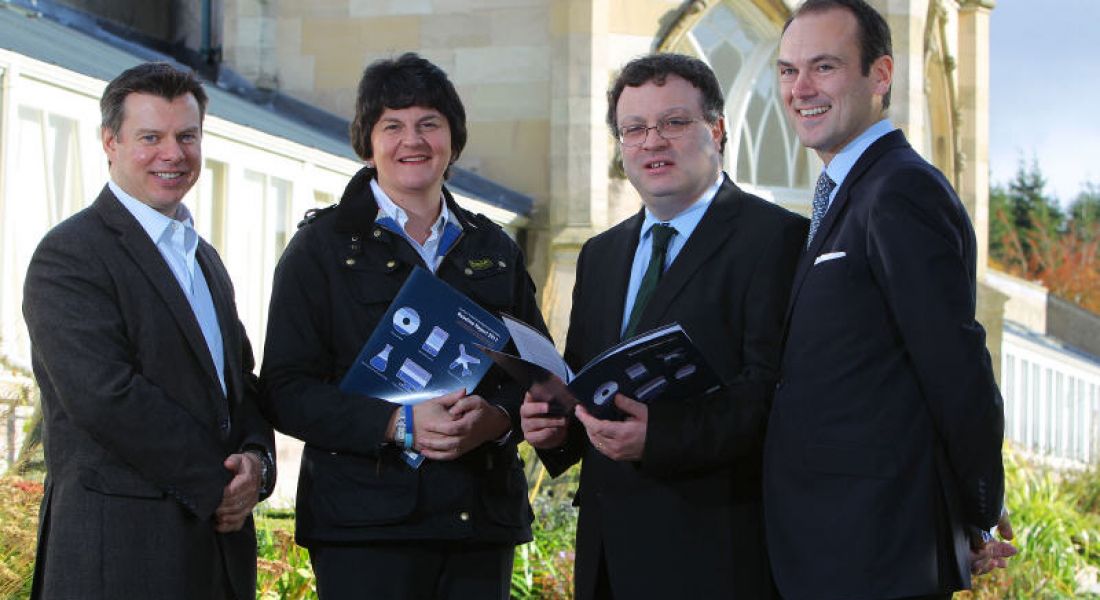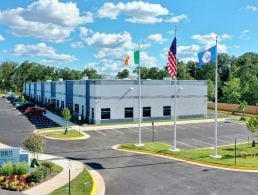If Northern Ireland can be transformed into the UK’s leading knowledge economy it would result in an extra 25,500 direct jobs across 6,000 new technology businesses and an additional 24,000 indirect jobs in the economy, generating an extra £3bn of Gross Value Added (GVA), according to a new report.
This scale of change would have a profound effect on the NI economy, turning it into one of the UK’s strongest, according to the Northern Ireland Knowledge Economy Index – Baseline Report published today by NISP CONNECT in partnership with Northern Bank.
The report was launched at an event in Stormont Castle today, where Enterprise Minister Arlene Foster and Employment and Learning Minister Dr Stephen Farry welcomed the report.
This inaugural report, underpinned by research by Oxford Economics, outlines the current health of the Northern Ireland innovation economy across a number of key metrics and compares its performance with other regions.
Call to action to fast-track NI’s knowledge economy
The report’s publication also signalled a ‘Call to Action’ to all interested parties to work together to fast-track the knowledge economy and deliver on the massive opportunity it represents.
The ‘Knowledge Economy Index’ will now be used as the basis for setting ambitious targets and an annual review of regional performance against those targets to grow the knowledge economy in Northern Ireland and will underpin a number of key action points. It is designed to help policy makers, trade organisations and individual businesses and entrepreneurs to deliver an innovation-based economy.
Among other things, it will inform future skills development, resource and grant funding allocation, the building of an attractive environment for capital investment, zoning and transport planning. It will also serve to demonstrate to the rest of the world that Northern Ireland is building momentum towards being recognised as a leading centre for innovation.
Outlining the purpose of the report, Steve Orr, director, NISP CONNECT, said: “For too long we have talked about developing a knowledge economy in Northern Ireland, now is the time for action. International experience tells us that we can achieve high levels of economic growth and job creation through knowledge-based growth.
“Knowledge-based jobs are also well paid, and indirectly create additional job opportunities as businesses make purchases and staff spend their wages – representing a win:win situation for the whole economy.
“This report is a starting point to tell us exactly where we are in the development of an entrepreneurial knowledge economy. Clearly, while we are making progress in some areas we are not there yet on a number of key metrics. In particular, it exposes the weaknesses in the availability of capital in Northern Ireland.
“It shows us that while we get significant return on the small investment that has gone into the knowledge economy to date, comparatively the capital flows into NI in research funding, VC, merger and acquisition (M&A) and public markets is far too low.
“Capital is the fuel of growth and is an absolute necessity for fast-growth technology companies and a growing indigenous private sector. Among other things this simply must be fixed.
Opportunity knocks for Northern Ireland
“This Index Report sets out the challenges and confirms the desire of the private sector to engage with and support the public policy agenda to deliver a step change in our economic ambitions. We are using this as a rallying call to all interested parties to work together to deliver the clear and realistic opportunities outlined in this report.”
Northern Bank chief economist Angela McGowan said: “This report couldn’t have come at more opportune time, when much greater emphasis is being placed on the need to be more proactive in steering Northern Ireland’s long-term economic performance.
“The report shows that our knowledge economy base is still lagging behind – not only compared to international comparators but we also lag relative to other UK regions. However, in identifying our weaknesses, this report also presents Northern Ireland with a challenge and an opportunity to raise our economic game and strive to become one of Europe’s leading knowledge economies.
“In order to achieve this, we need a collaborative approach, with government, businesses and the higher and further education colleges all stepping up to the mark. We should not underestimate the scale of our respective contributions if we are genuinely committed to creating prosperity and raising local living standards for all.”




